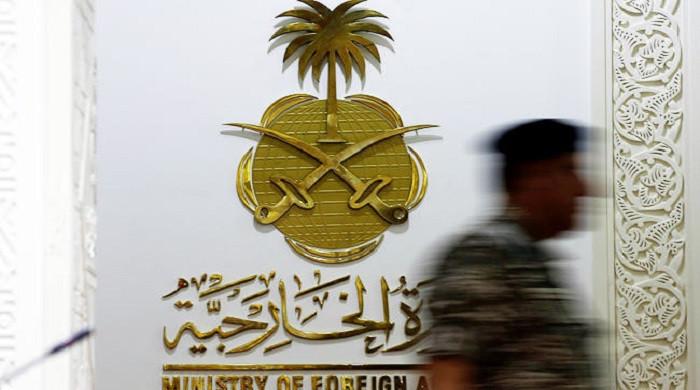- Truce signed during the Doha negotiations between Pakistan and Afghanistan.
- The Kingdom affirms its support for all regional and international peace efforts.
- Appreciates the diplomatic role of Qatar and Turkey in negotiating an agreement.
The Kingdom of Saudi Arabia (KSA) on Monday welcomed the ceasefire agreement between Pakistan and Afghanistan, calling it a vital step towards lasting peace and regional stability.
In a statement, the Saudi Foreign Ministry said the historic agreement was reached during a round of negotiations held in Doha.
“Saudi Arabia welcomes the signing by the Islamic Republic of Pakistan and Afghanistan of an immediate ceasefire and the establishment of mechanisms aimed at consolidating lasting peace and stability between the two countries, during the round of negotiations held in Doha,” said the Ministry of Foreign Affairs of Saudi Arabia.
“The Kingdom affirms its support for all regional and international efforts aimed at promoting peace and stability, and its continued commitment to providing security that ensures stability and prosperity for the brotherly peoples of Pakistan and Afghanistan.”
According to the press release, the Kingdom hopes that this positive step will put an end to tensions at the border between the two countries.
“The ministry also appreciates the diplomatic efforts and constructive role played by the State of Qatar and the Republic of Türkiye in this regard.”
Afghanistan and Pakistan agreed to an immediate ceasefire during talks in Doha, the two sides announced on Sunday, after a week of violent border clashes, the worst violence between the South Asian neighbors since the Taliban seized power in Kabul in 2021.
The ceasefire “has been finalized,” Pakistani Defense Minister Khawaja Muhammad Asif said on X on Sunday, saying the two sides would meet again on October 25 in Istanbul to discuss “detailed issues.”
Taliban spokesman Zabihullah Mujahid said in a statement that the parties had agreed to a comprehensive and meaningful ceasefire.
Qatar’s Foreign Ministry, which mediated Saturday’s negotiations with Turkey, said the follow-up meetings aimed to “ensure the sustainability of the ceasefire and verify its implementation in a reliable and sustainable manner.”
Attack, counterattack
The talks were led by Asif and his Afghan counterpart, Mullah Muhammad Yaqoob, both sides said.
Ground fighting between the former allies and Pakistani airstrikes across their disputed 2,600 km (1,600 mile) border were sparked after Islamabad demanded that Kabul rein in militants who had stepped up attacks in Pakistan, saying they were operating from safe havens in Afghanistan.
Pakistani forces gave a befitting response to the aggression, killing more than 200 Afghan Taliban and affiliated militants in a self-defense action. The army’s media wing, Inter-Services Public Relations (ISPR), said 23 soldiers embraced martyrdom during clashes with Taliban forces and terrorists.
The Taliban refuses to give sanctuary to militants to attack Pakistan and accuses the Pakistani army of spreading false information about Afghanistan and sheltering militants linked to ISIS to undermine its stability and sovereignty. Islamabad denies these accusations.
Militants have been waging a years-long war against the Pakistani state with the aim of overthrowing the government and replacing it with their strict model of Islamic governance.
“The Afghan regime must rein in proxies who have sanctuaries in Afghanistan and are using Afghan soil to carry out heinous attacks inside Pakistan,” Pakistan Army Chief Field Marshal Asim Munir said at a cadet graduation ceremony on Saturday.
The Taliban spokesperson said that during the Doha negotiations, “it was decided that neither country would take hostile actions against the other and that no support would be given to groups acting against the government of Pakistan.”
In a follow-up article on X, he said this reflected the Taliban’s long-standing position that Afghan territory would not be used against any other country.
The statements made about the agreement do not constitute a joint statement, he said.




